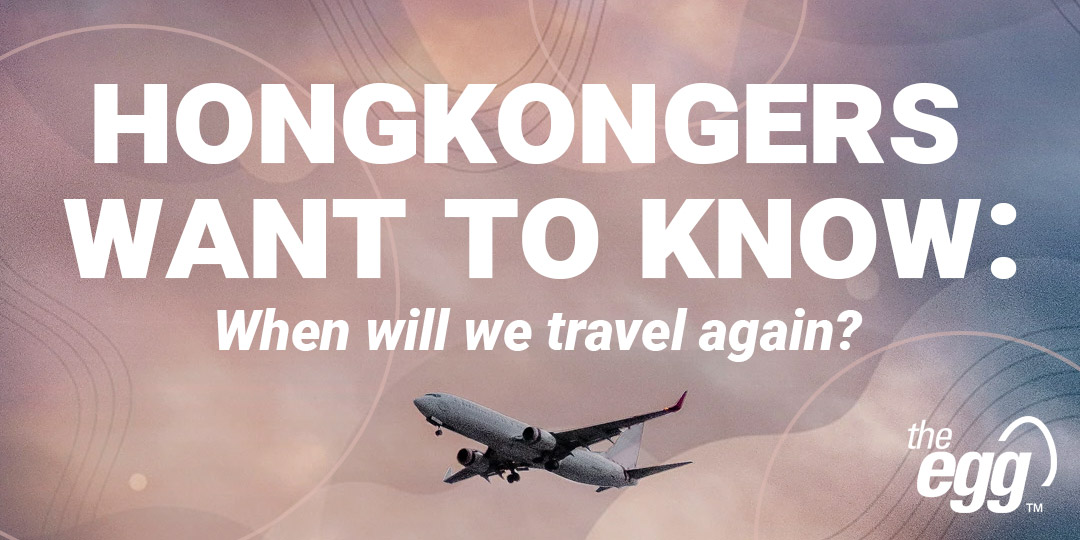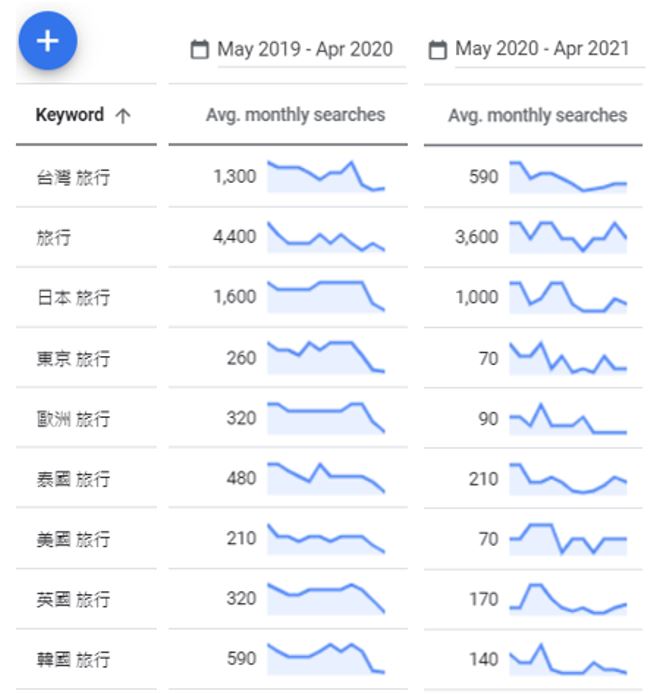When can we travel again? Discover what Hongkongers want to know
“When can we travel again?” is a question being asked all around the world—but without a definitive answer.
Still, with global vaccine rollouts, traveler confidence is growing and 54% of people in APAC alone have high expectations for near-future travel.
And this is reflected in their travel-related search queries.
So, let’s explore how travel search trends have evolved in Hong Kong’s post-COVID optimism and discover—with the help of Dragon Metrics’ keyword research tool—how to create travel content that clicks with your target audience.
Hong Kong’s Travel Search Trends: 2020-21
For Hong Kong residents in particular, and their insatiable appetite for travel, travel bans and long quarantine periods have been a tough pill to swallow, with the trade-off being too costly for most.
This has culminated in a year-over-year (YoY) drop in monthly search volume (MSV) for destinations popular with Hongkongers, like Korea, Japan, and Taiwan, which was most apparent after COVID-19 broke out in Hong Kong in Feb 2020.
Dragon Metrics: Search demand dropped for travel destinations popular with Hongkongers in Feb 2020
On the flip-side, new search terms like “staycation” and “glamping” saw significant rises in MSV, reflecting Hongkongers’ newfound desire for homebound experiences.
At the same time, with vaccination rates accelerating, the recent months saw search queries about prospective near-future travel resurface again. In particular, the search term “幾時可以去旅行” (when can we travel) exhibited rising MSVs since August last year, peaking at 720 MSV in Mar 2021.
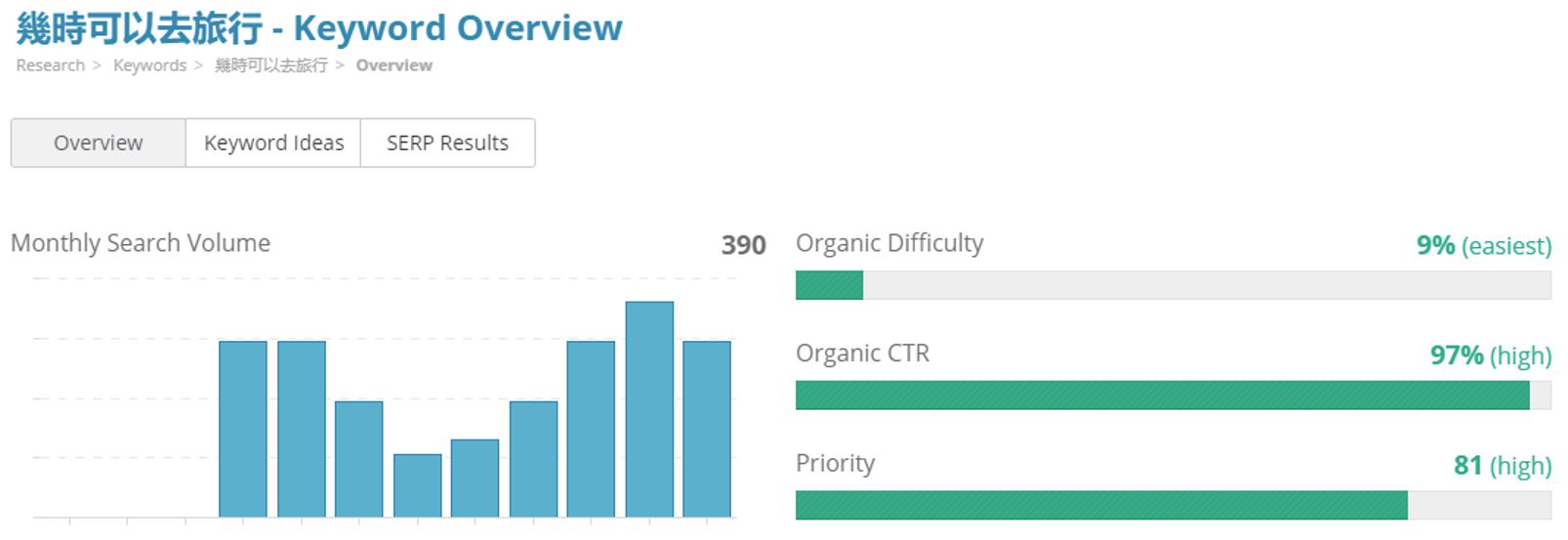
Top-Searched Travel Term: “When can we travel?”
Prior to the pandemic, it was hard to imagine not being able to travel whenever and wherever we wished.
And with lockdown restrictions easing in many countries, people are hungry and on the lookout for overseas travelling.
Interestingly, the search intent behind the query “幾時可以去旅行” (when can we travel) stems not from people wanting an exact date for when travel can resume, but instead from curiosity surrounding the latest travelling restrictions.
Observing the SERP for the term, the top-ranking results are articles from travel agency websites (OTAs) with updates on the immigration policies of different countries.
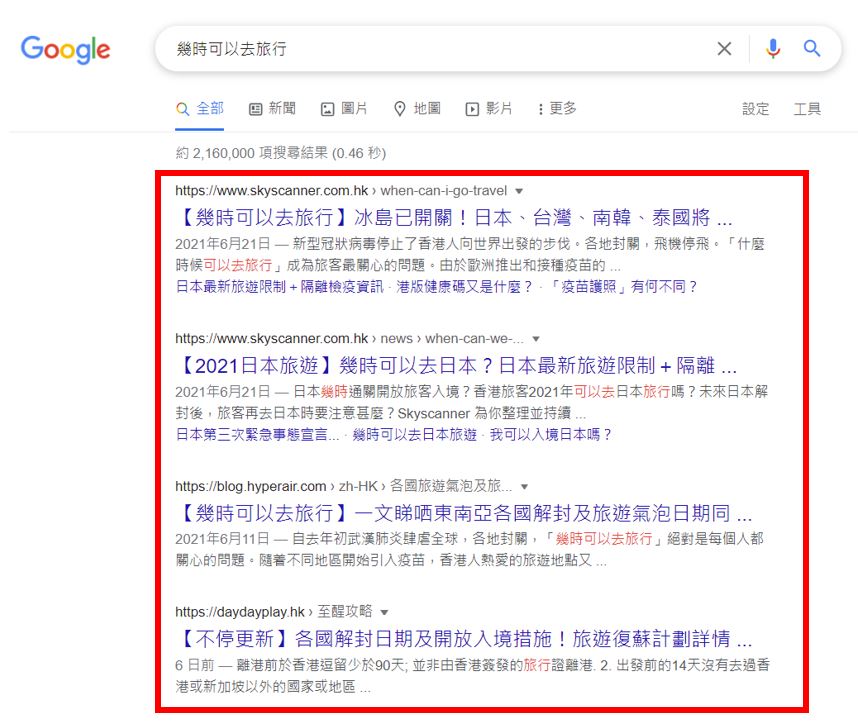
Diving into Dragon Metrics, you can get deeper insights and content ideas from the “Related Topics” and “Questions” sections under “Keyword Ideas”.
For instance, when people search for “幾時可以去旅行” (when can we travel), they are likely also interested in the cost considerations and preparation required for travelling under strict travel regulations.

One of the biggest considerations is the duration of quarantine periods—both when they arrive at their destination and upon their return to Hong Kong.
As such, the keyword “回港隔離” (quarantine when returning to HK)—also a new search term pertinent to the pandemic era—had a relatively high average MSV of 1,600 searches.
Top Travel Search Term for Content Marketers: “When can we travel to…”
Before creating content for post-pandemic traveling, is it doubly imperative to identify the most favored destinations among your target audience once international travel resumes.
By comparing popular travel destinations among Hongkongers, you’ll notice some search demand for “幾時可以去日本” (when can we travel to Japan) and “幾時可以去台灣” (when can we travel to Taiwan), both with average MSVs of 90 searches.
Since search demand for Japan (outlined in green below) emerged before the same query for Taiwan, we can deduce that Japan is the #1 destination Hongkongers are most looking forward to traveling to once tourism reopens in the country again.
Thus, to engage this captive audience, content marketers can cover travel alerts from Japan’s government, address customer pain points like the cost of ticketing and accommodation, and ease minds with well-thought-out itinerary ideas for travelers of all types.
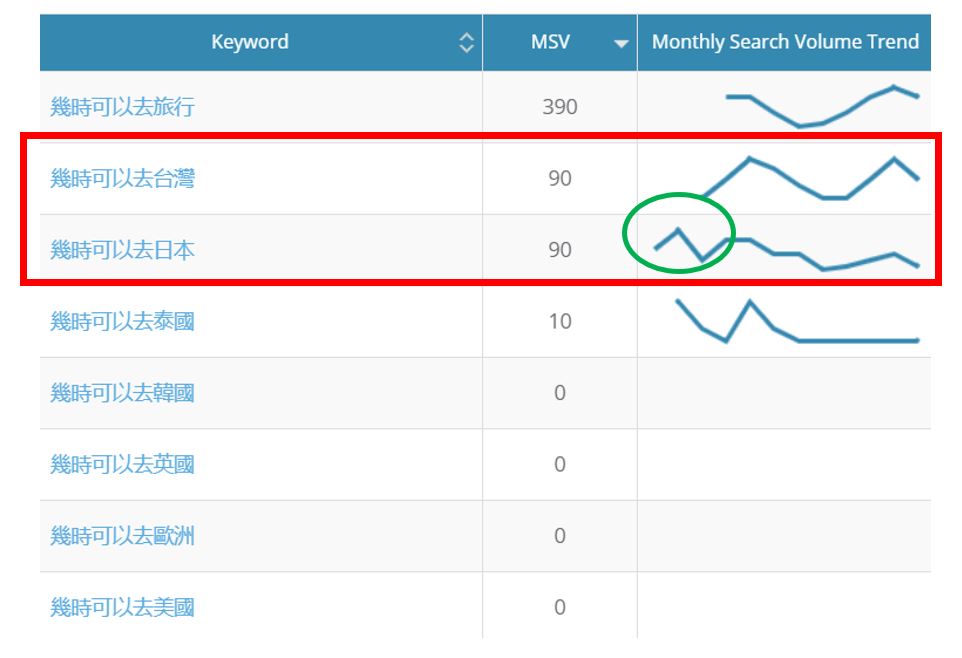
***
As digital marketers, it is always good practice to stay on top of trends in the real world that might give rise to new search keywords: Doing so gives you the best chance to capitalize on the resulting high-quality organic traffic.
Pro-Tip: As The Egg’s sister company, Dragon Metrics is a proprietary tool developed as the first truly global SEO platform that provides rank tracking, onsite optimization reports, link management, keyword research tools, and more for search engines around the world. In this article, we look specifically at Dragon Metrics’ prowess on Google, but Dragon Metrics works for all of the world’s major search engines, including China’s.


